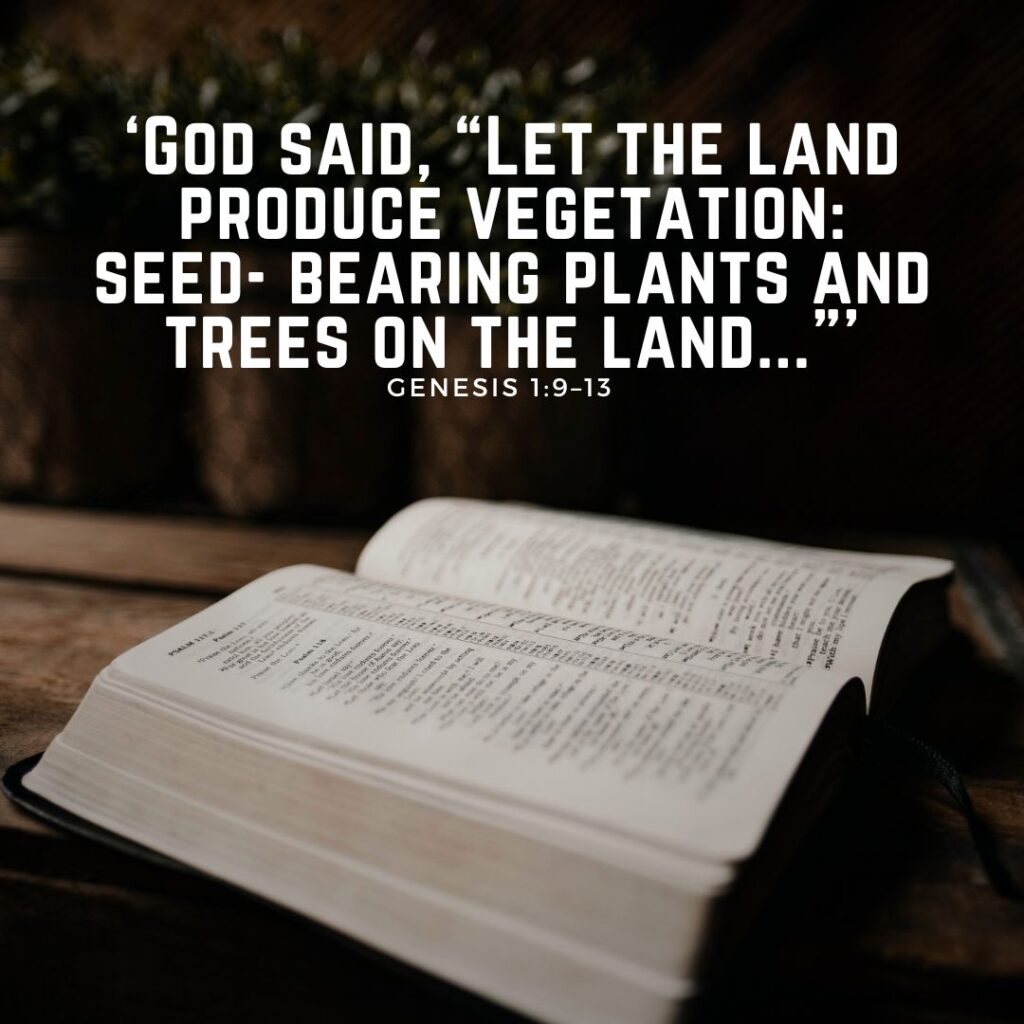
Genesis 1:9–13 ‘God said, “Let the land produce vegetation: seed- bearing plants and trees on the land…”’ (v.11)
Whether we’re keen gardeners or those who allow weeds to flourish more than vegetables and flowers, we can all benefit from delving into the theme of God as our Gardener and Harvester. Scripture gives us rich examples along this line, some of which we’ll explore over the next fortnight.
We begin in Genesis, where we see God forming the land, waters and vegetation for our use and benefit. His system is brilliant; the ground hosts the plants, which in turn receive nourishment and water through the land and lakes and rivers.
The vegetation itself contains the means of reproduction – the life-giving seed. Note how God sees that what He has created is good (v.12).
Of course, not long after God created this wonderful paradise, His people sinned against Him by eating the forbidden fruit (see Gen. 3:1–7).
With this wrongdoing, creation as well as humanity has suffered the consequences. For instance, now we can see a proliferation of weeds choking out life, of life-giving rains turning into floods, of climate change wreaking untold havoc.
But we can ponder God’s goodness and creativity by stopping and considering even how He created an apple – a seed-bearing fruit.
Picture it growing on a tree, something that appears seemingly out of nothing, bearing the seeds that can bring forth an abundant harvest.
As we eat an apple, its satisfying crunch can remind us of God’s creativity and provision; He makes food that not only fuels our bodies but satisfies our taste buds. Even a simple apple can remind us that God is our Creator and Provider.

A Prayer To Make:
‘Father, You created the heavens and the earth. Open our eyes to Your goodness, even in simple things such as an apple. Amen.’
An Action To Take:
Go for a walk and ask God to reveal Himself to you as you explore your surroundings. Notice His fingerprints, whether through the birdsong, vegetation or a body of water.
Scripture To Consider:
Gen. 3:1–19; Ps. 104; Col. 1:15–20; Acts 17:22–28








